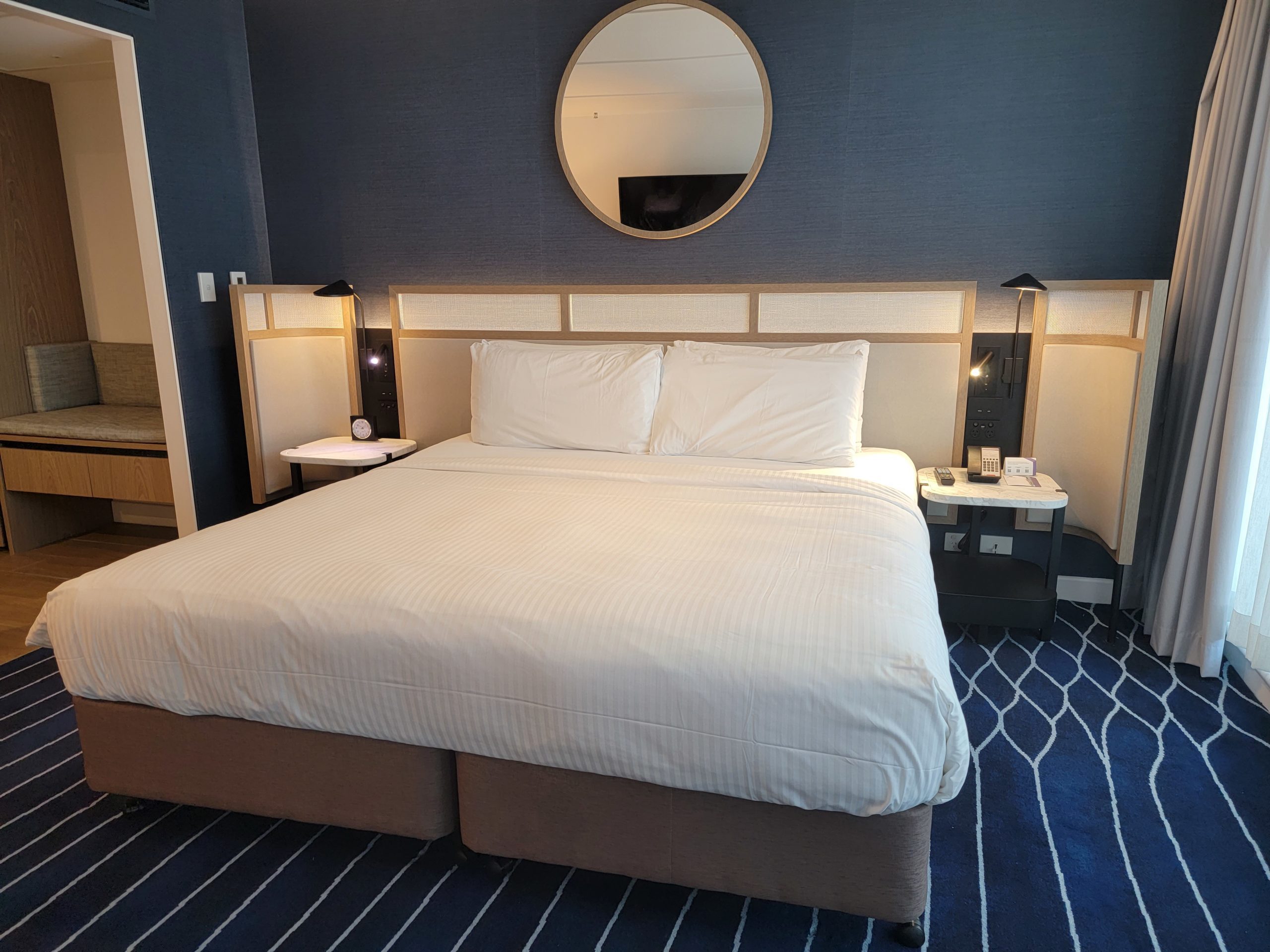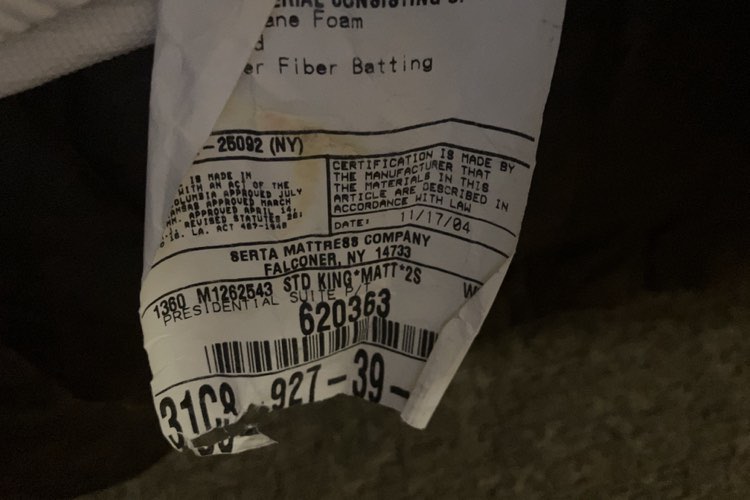Hotel mattress lifespans vary, based on the caliber of hotel, the quality of the mattresses purchased, and occupancy of the property. Hotels that are full every night wear out mattresses more frequently! And better hotels will change them more often.
So you’ll find some hotels with replacement schedules that range every three to five years on the one hand, to hotels that will stretch out mattress life closer to ten to squeeze out savings.
You’re simply not going to get a quality night sleep on a mattress that’s been used every night, by different people, for over ten years. They’ll develop bumps and pockets, and guests will complain – no matter how many times mattresses are flipped and rotated (and cleaned, though this often happens just a couple of times per year). Some hotels even keep using ripped and soiled mattresses, but an upper upscale property should not.

The best hotels offer such great mattresses that guests want to buy the exact same thing, as well as the bedding. You probably wouldn’t want to buy this mattress, though.
A reader shares this photo from his bed at the Crowne Plaza Pittsburgh, showing that it was 19 years old.

IHG Hotels promotes the Crowne Plaza Sleep Advantage® but upon looking through the details they don’t mention anything about… the mattresses, where are the foundation on which the rest of sleep is built.


Honestly, my bigger problem is that a lot of hotel mattresses are too soft for me.
They have to kind of go with a lowest common denominator of firmness and I need a firm mattress.
I haven’t ever slept on a mattress at a hotel that had actual issues, even at That Hotel, but I suspect I’ve been lucky.
But they’re often too soft.
That is a very good question. Hopefully, newlyweds don’t have their 1st marriage experience on it.
Well I despise firm mattresses not that it has anything to do with how old the mattress is or the appropriate life span or how good the quality of the mattress is.
High end beds have a longer life span.Cheap hotel mattresses shorter life span
Also if it sits on a box spring or has movement with a box spring will make a difference.
When I read about someone complaining about a soft mattress I can’t book the hotel quickly enough regardless of the age of the mattress
Like Canopy By Hilton great beds! But thats all subjective what we all like
Hotels can add firmness or softness if they are a good hotel to vary the options for guest preference.And if the hotel puts mattress toppers on and proper waterproof protectors they may last much longer without issue if no one is jumping on them
Should toppers be utilized they can then protect the mattress and creates a more sanitary barrier
for longer periods of time. A lot too depends on hotel housekeeping standards as well.
The first thing we check in the room is the quality of the mattress. And we have moved a number of times due to a problem. We’ve had the hotel replace the mattress twice once at a Ritz Carlton and once at a Westin.
The rooms that have the better view that are more popular will have much more wear and tear on the mattresses than those that don’t have of you and aren’t so good.
Do any hotel brands have mandatory brand standards which require mattress replacement after X years of age?
Seems to me that except when a hotel brand has been hard-selling its own branded beds to hotel owners/operators, perhaps there is too little brand owner incentive to focus the hotel owners on the beds. And brand standards overall seem to be getting looser over times.
I believe I heard that a mattress should be changed at the 8 year mark at least.
Does anyone know what mattress brands the major hotel chains purchase? Those that have great beds…..
Breton, it’s not a brand issue. Let’s say hotels purchase Sealy. The construction of mattresses Sealy produces for their retail channel is not of the same quality as their b2b channel.
A mattress has no set lifespan. Modern bed-in-a-box foam mattresses may become too soft and unsupportive, among other problems such as leaking fiberglass, after as little as half a year of use. Fortunately, even the cheapest hotels avoid those mattresses, which makes financial sense as the cost of fiberglass remediation could be equal to purchasing several Tempur-Pedics (which are also made of fiberglass but in a more contained fashion that won’t leak everywhere under normal use).
I love articles like this which get published on this site. Let’s take some context-fact free clickbait that really doesn’t tell you anything or takes an outlier situation and then perverts it like as if it’s common place while not getting any relevant information from the industry or anyone in it.
The facts are that every parent brand has renovation schedules for their respective brands that require all, fill in the blank with whatever you want in the room be it the TV-mattress-carpet-etc., to be replaced by a certain date.
Properties can get waivers for various reasons that prolong the amount of time until item X needs to be replaced and of course they can also roll the dice that the next time(s) the QA auditor shows up, they don’t ask the right questions, or they don’t find certain things which of course delays the capital expense potentially for years. The franchise owner/management company has a strong financial incentive to lie, obfuscate and drag their feet as long as they can until the threat of de-flagging is more imminent.
For the most part, no hotel is replacing anything in the room before it’s time unless that item is completely unusable or destroyed. Sure, there are outliers with high end luxury properties but that’s very niche and doesn’t come close to representing what the overwhelming majority of properties are actually doing.
Our initial priority upon entering a room is to assess the mattress’s quality. Over time, we’ve encountered situations where we had to change rooms due to mattress-related issues. Interestingly, we’ve experienced instances where the hotel replaced the mattress twice—once at a Ritz Carlton and another time at a Westin.
Rooms with exceptional views, which tend to be more sought after, often witness greater usage and consequent wear on their mattresses compared to less desirable accommodations.